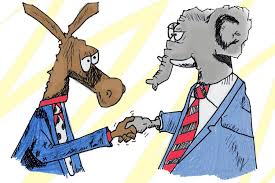Puryear, C., Kubin, E., Schein, et al.
(2022, January 11).
https://doi.org/10.31234/osf.io/fk8g6
Abstract
Efforts to bridge political divides often focus on navigating complex and divisive issues. However, nine studies suggest that we should also focus on a more basic moral divide: the erroneous belief that political opponents lack a fundamental sense of right and wrong. This “basic morality bias” is tied to political dehumanization and is revealed by multiple methods, including natural language analyses from a large Twitter corpus, and a representative survey of Americans with incentives for accuracy. In the US, both Democrats and Republicans substantially overestimate the number of political outgroup members who approve of blatant wrongs (e.g., child pornography, embezzlement). Importantly, the basic morality bias can be corrected with a brief, scalable intervention. Providing information that just one political opponent condemns blatant wrongs increases willingness to work with political opponents and substantially decreases political dehumanization.
From the General Discussion
These findings provide vital insights into why the United States finds itself burdened by political gridlock, partisanship, and high levels of political dehumanization. It may be difficult to imagine how disagreement over details of political policy can make partisans unwilling to even speak to one another or see each other as equally human. However, it could be that Americans do not see themselves in conflict with an alternative ideology but with opponents who lack a moral compass entirely. Believing others lack this fundamental component of humanity has fueled intergroup conflict throughout history. If the political climate in America continues down this path, then it may not be surprising to see two parties—who believe each other embrace murder and theft—continue to escalate conflict.
Fortunately, our results unveil a simple intervention with both large and broad effects upon the basic morality bias. Telling others that we oppose wrongs as basic as murder seems like it should provide no new information capable of altering how others see us. This was also supported by a pilot study showing that participants do not expect information about basic moral judgments to generally impact their evaluations of others. However, because the basic morality bias is common in the political domain, assuring opponents that we have even the most minimal moral capacities improves their willingness to engage with us. Most importantly, our results suggest that even just one person who successfully communicates their basic moral values has the potential to make their entire political party seem more moral and human.
